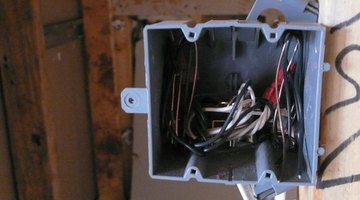The Electrical Code Requirements for a Detached Garage
The International Residential Code, the most widely adopted building code in the U.S., does not require that detached garages be provided with electricity. However, the code does set forth certain requirements for detached garages that are provided with electricity.

Keep in mind that codes vary from jurisdiction to jurisdiction, and these are minimums only.
Interior Lighting
Detached garages that are provided with electricity must have at least one interior light, and this interior light must be controlled by a wall switch. A lighted garage door opener may not be used to satisfy this requirement, even if the light is controlled by its own switch.
Exterior Lighting
Detached garages with electricity must have a light outside each grade level egress door, and this light must be controlled by a wall switch or motion sensor. The code does not consider the vehicle door to be an egress door.
Electrical Outlets
Those detached garages with electricity must have at least one electrical outlet. There are no restrictions on where the outlet or outlets may be placed.
GFCI Protection
Electrical outlets in detached garages must be protected by a ground fault circuit interrupter (GFCI).
The Drip Cap
- The International Residential Code, the most widely adopted building code in the U.S., does not require that detached garages be provided with electricity.
- However, the code does set forth certain requirements for detached garages that are provided with electricity.
- Detached garages that are provided with electricity must have at least one interior light, and this interior light must be controlled by a wall switch.
References
Writer Bio
David Brown began his writing career while still in college, writing and editing research grants and scientific papers. His work has appeared in such journals as "The Journal of Clinical Investigation" and "Gastroenterology." He currently owns a construction company in Boulder, Colo.
Photo Credits
- electrical box image by jimcox40 from Fotolia.com
- electrical box image by jimcox40 from Fotolia.com
More Articles
- How to Bypass a Garage Door Sensor
- How to Remove the Light Cover From a Genie Intellicode Opener
- How to Reset a Steel-Craft Garage Door Opener With Keyless Entry
- How to Change an Outside Flood Light
- Can I Put a Motion Detector in a Recessed Light?
- Minimum Space Requirements for Closed Plumbing Fixture Supports



